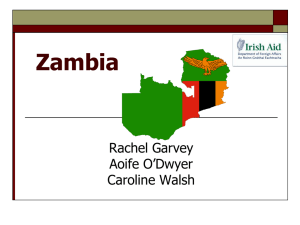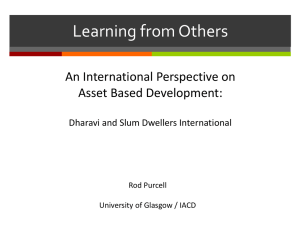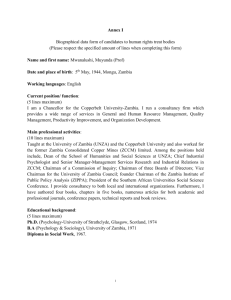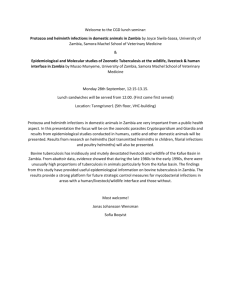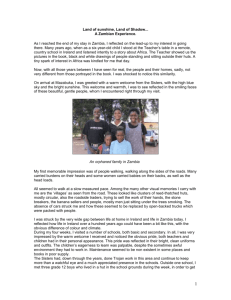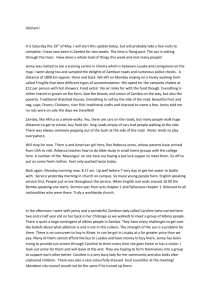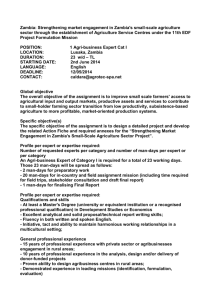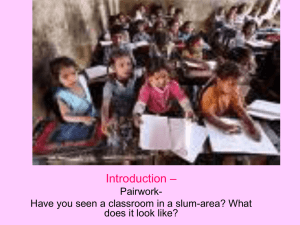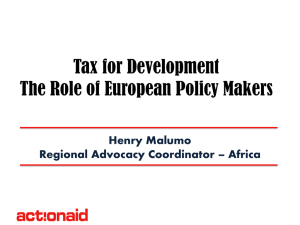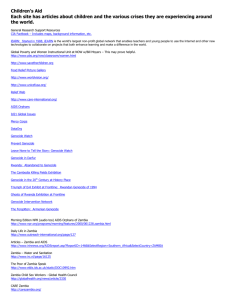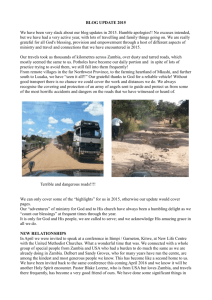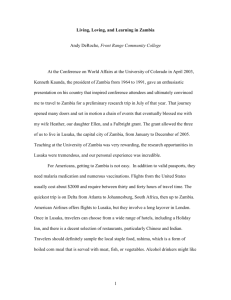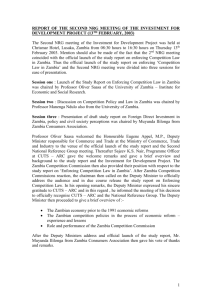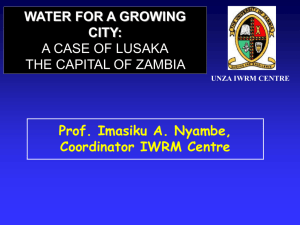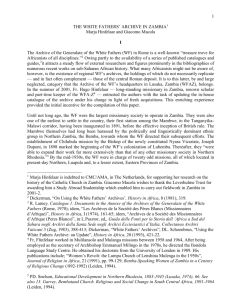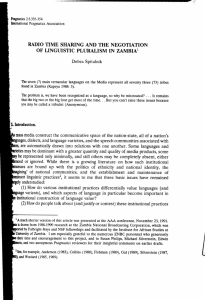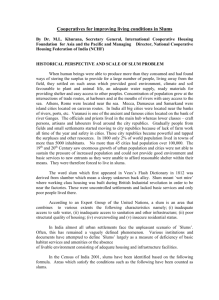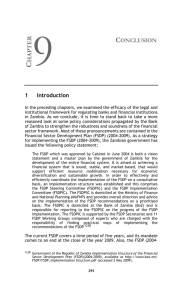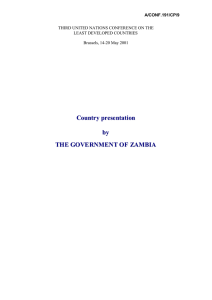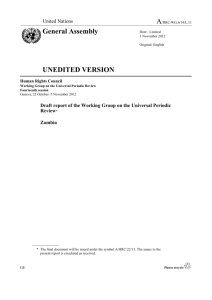Zambia
advertisement
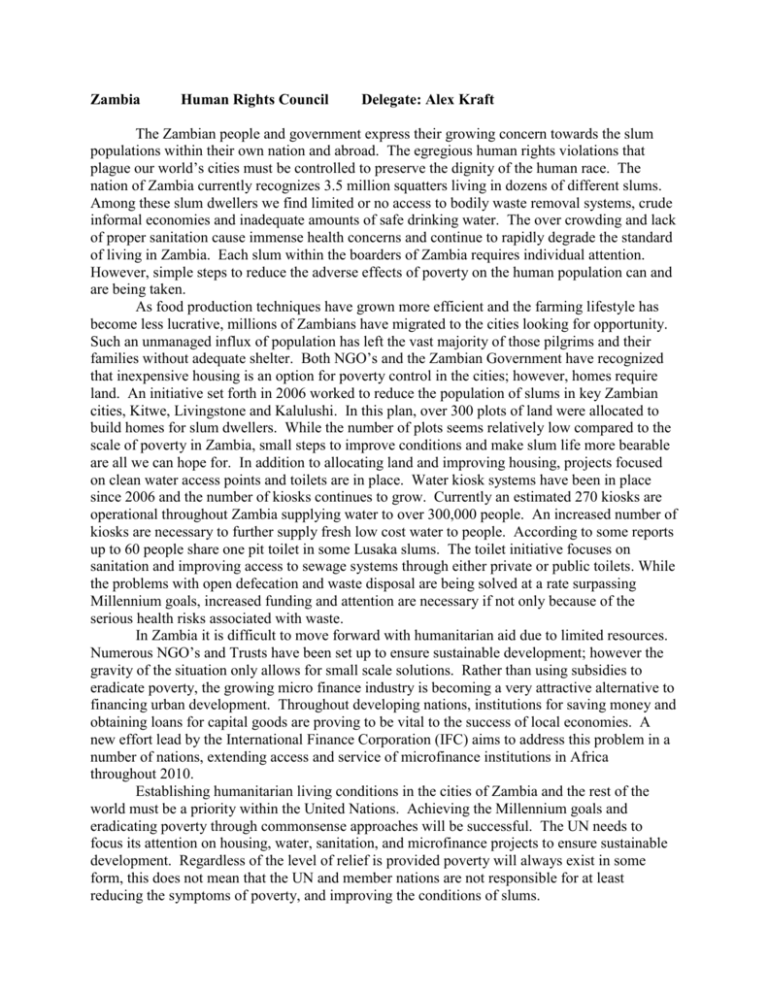
Zambia Human Rights Council Delegate: Alex Kraft The Zambian people and government express their growing concern towards the slum populations within their own nation and abroad. The egregious human rights violations that plague our world’s cities must be controlled to preserve the dignity of the human race. The nation of Zambia currently recognizes 3.5 million squatters living in dozens of different slums. Among these slum dwellers we find limited or no access to bodily waste removal systems, crude informal economies and inadequate amounts of safe drinking water. The over crowding and lack of proper sanitation cause immense health concerns and continue to rapidly degrade the standard of living in Zambia. Each slum within the boarders of Zambia requires individual attention. However, simple steps to reduce the adverse effects of poverty on the human population can and are being taken. As food production techniques have grown more efficient and the farming lifestyle has become less lucrative, millions of Zambians have migrated to the cities looking for opportunity. Such an unmanaged influx of population has left the vast majority of those pilgrims and their families without adequate shelter. Both NGO’s and the Zambian Government have recognized that inexpensive housing is an option for poverty control in the cities; however, homes require land. An initiative set forth in 2006 worked to reduce the population of slums in key Zambian cities, Kitwe, Livingstone and Kalulushi. In this plan, over 300 plots of land were allocated to build homes for slum dwellers. While the number of plots seems relatively low compared to the scale of poverty in Zambia, small steps to improve conditions and make slum life more bearable are all we can hope for. In addition to allocating land and improving housing, projects focused on clean water access points and toilets are in place. Water kiosk systems have been in place since 2006 and the number of kiosks continues to grow. Currently an estimated 270 kiosks are operational throughout Zambia supplying water to over 300,000 people. An increased number of kiosks are necessary to further supply fresh low cost water to people. According to some reports up to 60 people share one pit toilet in some Lusaka slums. The toilet initiative focuses on sanitation and improving access to sewage systems through either private or public toilets. While the problems with open defecation and waste disposal are being solved at a rate surpassing Millennium goals, increased funding and attention are necessary if not only because of the serious health risks associated with waste. In Zambia it is difficult to move forward with humanitarian aid due to limited resources. Numerous NGO’s and Trusts have been set up to ensure sustainable development; however the gravity of the situation only allows for small scale solutions. Rather than using subsidies to eradicate poverty, the growing micro finance industry is becoming a very attractive alternative to financing urban development. Throughout developing nations, institutions for saving money and obtaining loans for capital goods are proving to be vital to the success of local economies. A new effort lead by the International Finance Corporation (IFC) aims to address this problem in a number of nations, extending access and service of microfinance institutions in Africa throughout 2010. Establishing humanitarian living conditions in the cities of Zambia and the rest of the world must be a priority within the United Nations. Achieving the Millennium goals and eradicating poverty through commonsense approaches will be successful. The UN needs to focus its attention on housing, water, sanitation, and microfinance projects to ensure sustainable development. Regardless of the level of relief is provided poverty will always exist in some form, this does not mean that the UN and member nations are not responsible for at least reducing the symptoms of poverty, and improving the conditions of slums.
